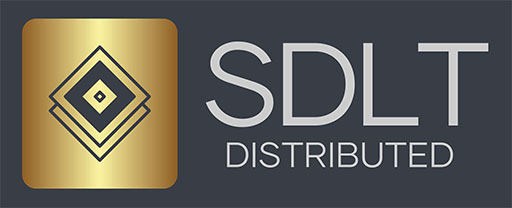
Blockchain Combats Fraud Through Trust & Transparency
One of the original purposes of blockchain was to prevent fraud in digital currency exchanges. In 2020, we have seen the technology evolve beyond the financial sphere – now blockchain combats fraudulent activities for businesses across sectors.
Blockchain is a type of distributed ledger – essentially an encrypted database – that shares transaction data across a public or private network of participants. The ledger is constantly reconciled, with system management and authorisation distributed across the network. Therefore, without a centralised authority or version, there is no single point of failure in the system and no obvious place to launch a fraudulent attack. It is also near-impossible for a perpetrator to tamper with records stored on the blockchain as transactions are validated and secured by a consensus algorithm. A perpetrator would have to control a majority of the system to manipulate stored information… very unfeasible in practice.
Curbing the global counterfeiting problem
Blockchain combats fraud by being immutable since each recorded transaction cannot be altered or deleted. This distributed ledger system allows participants to verify an asset’s provenance and view its full transaction history – where it came from, where it’s been, who’s had ownership of it, etc. Once validated through peer consensus, a transaction is recorded in a so-called ‘block’. The block is then given a timestamp, linked to the previous block in the chain, and cryptographically secured. Goods placed on the blockchain have provenance and an immutable transaction history that can successfully mitigate the global counterfeiting problem.
Blockchain combats fraud with nowhere for fraudsters to hide
Distributed ledgers can be permissioned so that members must be invited to participate in the network. This control over access and identity management is great for fraud prevention. Even credentialled users can’t add records to the database without achieving consensus from peers in the network. Whilst the near impossibility of compromising the system is enough to largely eliminate fraudulent activities, those fraudsters that do attempt any shady business have nowhere to hide their tracks and a high likelihood of getting caught!
Secure digital IDs, tighter supply chains, and smart contracts
Nicknamed ‘the trust protocol’, blockchain combats fraud, counterfeiting, and corruption better than any other technology. Some of the ways it does this is through secure digital identification, tighter supply chains, and smart contracts. Fraudsters have nowhere to hide as blockchain technology brings the potential for personalised, secure digital IDs to the entire network of participants. Using a shared distributed ledger enables complete visibility of business transactions and stakeholders in the end-to-end supply chain, making fraudulent transactions and their perpetrators easy to identify. Companies can verify the legitimacy of each process in the supply chain, so you as a customer can be confident in that gluten-free bread and those free-range eggs… Parties involved across transaction processes use a series of secure “if/then” smart contracts, which further thwart the activities of fraudsters. Smart contracts connect real-time information (across multiple systems) to automatically trigger transaction processes when pre-agreed conditions are met – such as storing funds in escrow until both parties are satisfied.
Fraud will be a thing of the past
Blockchains hold a lot of promise for combatting fraud because of their trusted, transparent nature. A technology like blockchain that strengthens trust, becomes a fitting solution when corruption represents a breach of said trust. Transparency embedded in the foundational technology is also an essential element of any anti-fraud effort. Ultimately, with blockchain serving as the all-mighty third-party mediator for pretty much any interaction, fraud will be a thing of the past.
But fraudulent activities are still thriving at present and with the detrimental operational effects they can have on businesses, are not something you can ignore. Tackle the various forms of fraud, counterfeiting, and corruption in your business network with custom blockchain infrastructure developed by SDLT. To find out more, please contact Adrian Apperley directly at +66 (0) 8 1751 8308 or through .
From wealth management to wealth manufacturing | The Asset
Greenhouse Gases Ledger for emissions management
Human-induced carbon dioxide fuels global warming Greenhouse gases (GHG) are an essential part of Earth’s atmospheric makeup. These…
Blockchain brings seed-to-sale transparency to cannabis
Blockchain and cannabis are two highly disruptive trends that are fundamentally shifting how business is conducted across the…


